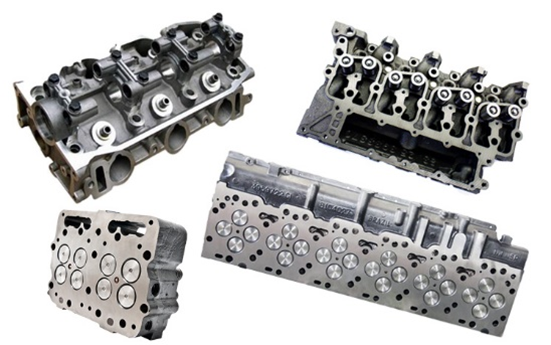Your cylinder head is an important part of your engine. It is part of the combustion chamber where fuel and air flow through and exhaust flows out. If problems with your cylinder head are not addressed, it can cause your engine to go bad. If this happens, often the best thing to do is replace it. But how can you tell if your cylinder head is in need of replacement?

What Causes a Cylinder Head to Go Bad?
First, it’s important to understand what causes a cylinder head to go bad. The most common cause is excessive heat. Too much heat can cause metals to expand and crack. Worn valves are another cause of cylinder heads going bad, which can happen when your vehicle has had a lot of use. When valves are worn, oil may leak into the combustion chamber, making the engine run less efficiently.
Common Signs of a Bad Cylinder Head
Here are a few common signs of a bad cylinder head to look out for:
1. You’re using more fuel than normal: Sometimes, engine valves are not sealed properly or become worn out. When this happens, the combustion cycle won’t have the right pressure, and you’ll need to use more fuel as a result.
2. You’re using more oil than normal: Similarly to the fuel, when valves are worn and seals come off, oil can get into exhaust and intake ports, resulting in greater oil consumption.
3. The engine is overheating: Excessive heat can lead to cracking, which can cause major problems. A cracked cylinder head is a common and serious issue to watch out for.
Cracked Cylinder Head Symptoms
So how do you know for sure if your cylinder head is cracked? Keep an eye out for these symptoms:
1. Poor engine performance: The first thing you’re likely to notice if you have a cracked cylinder head is poor performance from your engine. The crack causes air pressure to escape, resulting in low compression. The engine will run much slower and less smoothly when this happens.
2. Oil leak: Since a cylinder head contains oil, the oil will leak out if there is a crack. If oil is leaking, your check engine light should be triggered, signaling that you should check under the hood.
3. Coolant leak: In addition to oil leaking, coolant will leak as well. Without enough coolant, your engine will begin to overheat.
4. Smoke: When exhaust leaks, this can sometimes cause the engine to smoke. This is more rare and should be dealt with immediately.
